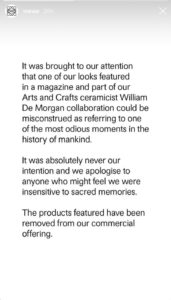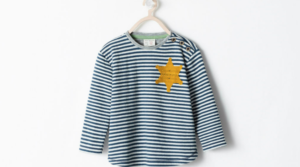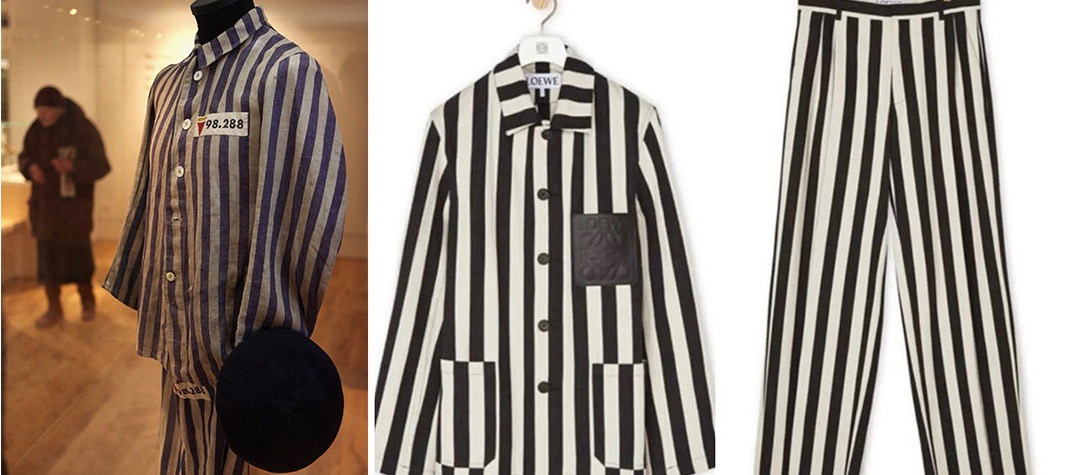The Spanish luxury fashion brand, Loewe, faced widespread backlash after its November 14 launch of an outfit that eerily resembled a concentration camp uniform worn by victims of the Holocaust.
The outfit, part of the William De Morgan capsule, was being sold for $1,840. Called out by Diet Prada––an Instagram account that highlights copycat fashion designers––cofounders Tony Liu and Lindsey Schuyler wrote

that they were, “Unable to see anything but concentration camp uniforms…a collection meant to “capture a freedom of imagination”. But with the particular stripe proportions and layout, uniform-style garments, and prominent chest patches, there’s not actually much left to the imagination when the resulting look is so uncannily disturbing.”
Since then, Loewe has pulled the product from its website and apologized via Instagram Stories, stating: “It was brought to our attention that one of our looks featured in a magazine and part of our Arts and Crafts ceramicist William De Morgan could be misconstrued as referring to one of the most odious moments in the history of mankind.” Adding further that “It was absolutely never our intention and we apologise to anyone who might feel we were insensitive to sacred memories. The products featured have been removed from our commercial offering.”

Unfortunately, this is not the first time the fashion industry has made such an oversight. In 2014, Zara, another Spanish fashion retailer, apologized and pulled a striped T-shirt that bore a yellow star. While the company stated that it was inspired by “the sheriff’s stars from the Classic Western films,” it drew outrage over its similarity to the Star of David worn by Jewish concentration camp inmates.
The World Jewish Congress said in a 2014 statement, “This is not the first time we have seen a retail clothing company making this same offensive mistake. The fact that this keeps happening shows that there is a serious need for education about the Holocaust and the history of anti-Semitism.”

